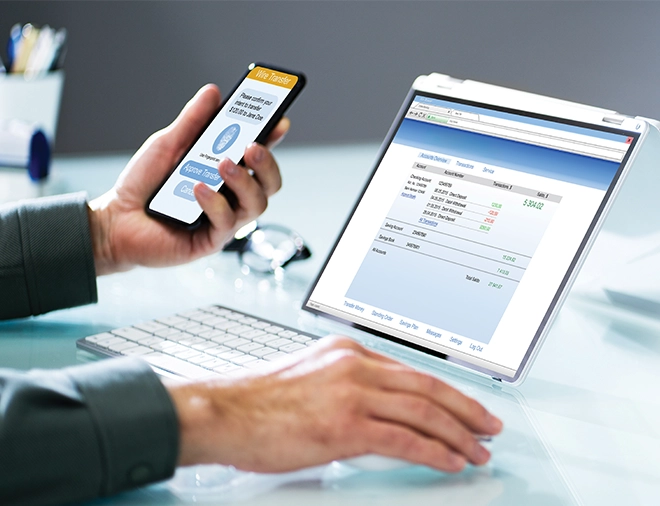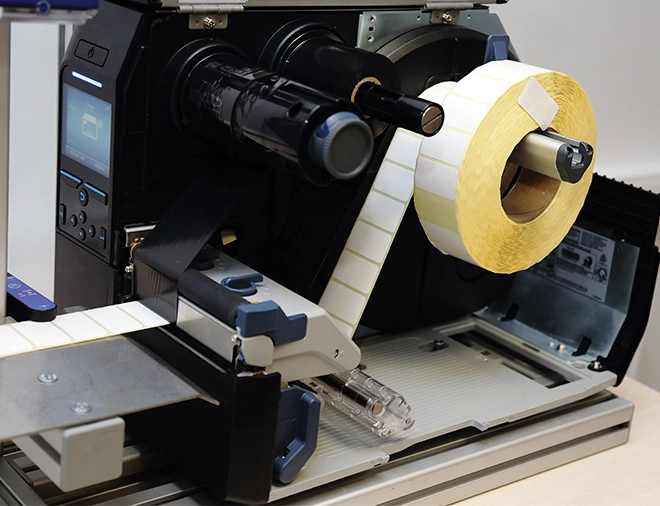

From the way we manage our suppliers, to the protection of our IT systems and data, the global quality standards that we apply to client projects and our in-house operational excellence processes, we are clear about our expectations of ourselves and others.
Excellence in these functional areas is fundamental to our license to operate because the responsibility associated with carrying out research, development and manufacturing which impacts human and animal health means that compromise is never acceptable. Our operating standards are crucial and must be met by every individual who plays a role in our activities whether inside the Company, or in a partner or supplier role.

Suppliers hold a critical role in the organization’s ability to fulfill its commitment to maintain environmental, social and governance standards. When procuring goods and services, the Company actively seeks suppliers who share its values and performance expectations as well as meeting product and service specifications. We aim to build strong partnerships with crucial suppliers and develop individualized supply plans with each of them.
The Company has collaborated with a network of more than 2,900 suppliers based in 30 countries, catering to a wide spectrum of needs ranging from chemicals to electronic equipment and capital items72 During FY23, Syngene collaborated with 1,387 suppliers categorized as MSME (Micro, Small and Medium Enterprises) in India, collectively contributing around 47% of the total domestic expenditure. 1,362 suppliers were located close to our campuses, representing 62% of the domestic spending.73 The establishment of a resilient supplier ecosystem with multiple sources of essential materials is a strategic measure to mitigate supply risks. A dedicated team of skilled sourcing and procurement experts supervises the procurement process, maintaining close relationships with the global supplier network to ensure on time delivery of materials while complying with requirements related to safety, the environment, human rights and labor standards and business ethics.
Syngene utilizes technology to ensure end-to-end supply chain integration. This improves visibility, agility, cost efficiency, fosters network collaboration, and enhances risk management in the supply chain.
72 GRI 2-6
73 GRI 204-1
100% of Syngene’s suppliers are covered under our Supplier Code of Conduct. Before achieving supplier status with Syngene, all suppliers undergo rigorous assessments. The Sustainable Procurement Policy outlines specific expectations regarding suppliers’ environmental, social, and governance performance, aligning closely with the standards set out in the Supplier Code of Conduct. In FY23, Syngene screened 76 suppliers using the EcoVadis Supplier ESG Assessment Framework to conduct a risk analysis of its supplier base.
Syngene conducts internal quality and safety audits for its suppliers annually, emphasizing criticality in risk and compliance with regulatory standards. Additionally, critical suppliers selected based on our expenditure and risk factors associated with their goods and services, undergo external ESG audits. This approach helps to maintain high standards and adherence to regulatory requirements in our supplier network. In FY23, there were no occurrences of forced or compulsory labor in our supply chain.74
For FY24, Syngene is developing a new supplier diversity policy. This policy will underscore the Company’s commitment to equitable and transparent procurement processes, ensuring that diverse suppliers are provided with equal opportunities to compete for business.
|
New suppliers |
3 |
|
Number of existing suppliers that were assessed using environmental criteria |
76 |
|
Number of suppliers identified as having significant actual and potential negative environmental impacts within their supply chain |
5 |
|
Number of suppliers with who mutually agreed on corrective actions/improvements were agreed upon due to their significant actual and potential negative environmental impacts |
9 |
|
Number of suppliers whose contracts were terminated due to significant actual and potential negative environmental impacts |
0 |
|
New suppliers |
3 |
|
Number of existing suppliers that were assessed using social criteria |
76 |
|
Number of suppliers identified as having significant actual and potential negative social impacts within their supply chain |
2 |
|
Number of suppliers with who mutually agreed on corrective actions/improvements were agreed upon due to their significant actual and potential negative social impacts |
7 |
|
Number of suppliers whose contracts were terminated due to significant actual |
0 |
Link to supplier code of conduct:
https://cdn.syngeneintl.com/2022/01/27163931/Supplier-code-of-Conduct-2022.pdf74 GRI 408-1 and 409-1
75 GRI 308-1
76 GRI 308-2
77 Syngene uses the EcoVadis Supplier ESG Assessment Framework to identify high risk suppliers. All suppliers who scored less than the threshold score defined in our Sustainable Procurement policy have been identified as high risk suppliers. In FY 2021-22, we considered EcoVadis score of less than or equal to 23 as threshold for identifying high risk suppliers. In FY 2022-23, we revised this threshold to less than 30 in alignment with our Sustainable Procurement policy
78 GRI 414-1
79 GRI 414-2
|
Total suppliers |
2,921 |
|
Total tier-1 suppliers |
2,921 |
|
Critical tier-1 suppliers |
856 |
|
Critical non-tier-1 suppliers |
0 |
|
MSMEs/small producers |
1,387 |
|
Within the district and neighboring districts |
1,032 (within Bangalore) and 135 (rest of Karnataka) |
|
Marginalized/vulnerable groups |
7 |
In response to supply chain disruptions, the Company has broadened its dual-sourcing practices and increased local procurement. This approach facilitates faster raw material supply turnaround while supporting sustainability objectives through a reduced carbon footprint. Additionally, local procurement helps minimize the risk of supply chain disruptions. In India, the procurement and locally sourced materials expenditure amounted to Rs 1,265 Crores, with Rs 691 Crores allocated within Bangalore and Karnataka region.81
During the year, the Strategic Sourcing function introduced a supplier quality assurance team, with a focus on promoting GMP compliance across the supplier network and ensuring complete traceability of procured materials. This team’s primary objectives include reducing supply risks through process and documentation improvements and enhancing supplier performance through safety and quality evaluations. Furthermore, the usage of the supplier onboarding portal has expedited documentation validation by providing simultaneous access for essential internal teams, such as Legal, Strategic Sourcing, and Finance.
The Company has implemented several innovative strategies to enhance its supply chain performance management. These include the introduction of an automated Management Information System (MIS) to track both lagging and leading indicators, a dedicated tool for vendor onboarding and document transfer, an E-Procurement tool to streamline the processes of bidding, quotation evaluation and supplier selection; a shipment tracking tool to optimize deliveries; and an online bill of entry system. Finally, in alignment with our sustainability goals, we are committed to consignment consolidation in situations where it has the potential to make a positive impact.
80 GRI 2-6
81 GRI 204-1

Global quality standards are applied to all client projects. The Company has invested extensively in digital processes to improve accuracy and minimize human error. The shift to fully digital quality systems brings improved efficiency, speed and accessibility to audit trails, with plans to make quality control laboratories entirely paperless.
Syngene facilities hold accreditations from regulatory authorities including the US FDA (United States Food and Drug Administration), EMA (European Medicines Agency), PMDA (Pharmaceutical Medical and Devices Agency) and Indian national authorities. We recognize the importance of regulatory inspections and client audits in maintaining quality standards and we conduct internal audits and self-inspections to proactively identify and address any shortcomings.
In FY23, regulatory bodies and clients conducted a total of 78 successful audits including the US, European, and UK regulatory agencies auditing our biologics facilities in Bangalore.
Approvals gained during the year:
In addition to meeting regulatory requirements, the Company has completed industrial or activity-specific accreditations managed and audited by recognized third party assessors. These accreditations ensure that processes comply with the latest practices, are fully documented, and regularly inspected.
Syngene’s initiative towards early adoption of digital platforms started in 2018 with the rollout of TrackWise (paperless Quality Management System), Radio Frequency Identification System (for document archival), Laboratory Information Management System (Quality Control sample life cycle management) and Learning Management System. These rollouts were instrumental in enhancing compliance and increasing productivity. In addition, the digitization program brought a significant reduction of paper across all operations. The next phase of this project will include the exploratory use of Artificial Intelligence technology for document reviews, advanced Quality Control scheduling and planning platforms and the use of e-lab notebooks to integrate non-network equipment and thereby eliminating the use of paper during batch testing and release.
Since the rollout in 2018, the estimated cumulative savings of paper through various platforms are as captured below:
|
Digital platform |
No. of pages saved |
Total saving |
|
TrackWise |
1,850,000 |
4,526,900 |
|
Paperless Validator |
672,000 |
|
|
EDMS (Electronic Document Management System) |
640,300 |
|
|
LIMS and eLN (Laboratory Information Management System and electronic Lab Notebook) |
345,510 |
|
|
LMS (Learning Management System) |
320,000 |
|
|
eBMR (electronic Batch Manufacturing Record) |
219,700 |
|
|
Electronic User Access Management System |
170,000 |
Syngene’s ongoing journey towards paperless operations not only enhanced data management and reduced human errors but also brought down the cumulative carbon footprint by approximately 30 metric tons (Calculated using the tool https://www.carbonfootprint.com/calculator.aspx) of CO2 equivalent.


The principles of operational excellence and continuous improvement are embedded across all company operations and essential functions. A range of training programs in the tools and techniques that underpin operational excellence are available to empower the workforce, fostering process improvement and waste reduction including: Six Sigma; Lean daily management; Japanese techniques such as Gemba and Kaizen; and other methodologies.
Efficient operational delivery is a collective responsibility for all employees. The Company uses a proprietary approach with a focus on six key performance parameters: safety, quality, delivery, engagement, compliance, and cost (SQDECC). Visual SQDECC – Syngene Lean Daily Management dashboards are positioned across the organization in all laboratories, manufacturing areas and support functions. The dashboards facilitate daily tracking, monitoring, and reporting of laboratory performance, employing a simple color-coded system. This approach enables the swift identification and resolution of issues as they arise, ensuring the delivery of reliable, on target, service to clients
In FY23, teams conducted more than 500 why-why analyses to resolve issues by identifying their root causes. The Company also deployed Japanese management techniques, including Gemba walks and Kaizens, to engage employees and implement multiple, low-cost, low-risk, high-impact improvements that yield long-term benefits. This year, Gemba training was provided to 300 new managers and nearly 2,000 Kaizen ideas were received, playing a significant role in continuous improvement and ensuring operational excellence across the Company.
Quality, On Time, In Full (QUOTIF) is a pivotal performance measure, across Syngene’s operations. It maintains a sharp focus on meeting client requirements within committed timelines. Meeting deadlines is vital for clients, whether the Company provides specialized functional services or fully integrated end-to-end solutions. Improved levels of QUOTIF performance were recorded in several areas of operations during the year contributing to the organization’s commitment to meeting client needs and delivering exceptional outcomes.
At Syngene, all employees receive training and the opportunity to become certified in Lean Six Sigma techniques. New staff members are required to complete the first level (white belt) certification within 30 days of joining the Company. Advanced training programs are available to attain green belt and black belt certifications, which encompass identifying improvement projects and acquainting themselves with the DMAIC (Define, Measure, Analyse, Improve, Control) process.
In FY23, the organization developed 2,500 white belt, 74 green belt, and 28 black belt professionals in Lean Six Sigma techniques. The green belt and black belt projects made important operational improvements related to cost, quality, safety and environment.
Syngene was honored at the 7th Confederation of Indian Industry national competition on low-cost automation held in New Delhi, India, securing two prestigious Gold National awards.
The Company has invested heavily in technology to streamline core processes, reduce errors, and ensure efficient service delivery. Alongside its emphasis on efficiency, the Company focuses on information security to ensure that it safeguards its data and the data generated from client projects.
All research and development conducted for clients yields data that forms the basis of essential insights and critical decisions. To safeguard this data, all IT systems are ISO 27001:2013 certified.
The Company has strengthened its cybersecurity defenses by implementing the best control operations available. These operations are designed to identify and respond to known cyber threats while also adapting to emerging and evolving threats. A privileged access management system is in place to prevent any unintentional or intentional misuse of the Company’s systems. Additionally, the organization uses phishing simulation programs and conducts ongoing security awareness sessions to address and mitigate internal threats.
The organization prioritizes data security due to the valuable information often included in the products that are delivered to the clients. Each research experiment yields a dataset, providing an opportunity to generate essential insights and critical decisions.82
82 SV-PS-230a.1. and SV-PS-230a.2.
83 GRI 418-1 and SV-PS-230a.3.
The Company has focused on digitization widely across the operations to reduce human error, increase speech and traceability of all kind of operations from data collection to inventory management and engineering & maintenance.

The organization’s centralized compound management and registration systems are on track for completion within the current fiscal year.
Digitization of all chemical inventory transactions in both storage and laboratory settings, was achieved through the adoption of QR codes and handheld devices. This innovative approach has proven instrumental in optimizing inventory storage and cost reduction. The technology was further extended to warehouses, allowing real-time tracking of inventory transactions.


The implementation of a single label concept in warehouses has eliminated the necessity for multiple labels at various stages of inventory movement. This aligns with the overarching goals of achieving a compliant, safe, and secure infrastructure, leveraging analytics and business intelligence for informed decision-making. Furthermore, an organization-wide integrated workflow enhances the client experience, while digital platforms streamline control and scientific systems.
The goal of achieving 100% paperless laboratories will ensure data integrity and operational efficiency. Through digitization, the Company has increased accuracy, strengthened data integrity and improved data entry compliance which enhances traceability. Electronic laboratory notebooks have been fully implemented in Discovery Services and the Development Services laboratories will be paperless by the end of 2023.


An e-BMR system was introduced in Manufacturing Services, with the first phase completed for the Biologics and Chemical Development facilities. A shift to electronic logbooks for shop floor activity in manufacturing plants is underway, eliminating the need to archive over 1,000 logbooks annually. The organization is also advancing towards total paperless validation of electronic and computerized systems for its Quality function by March 2024.